Ludwig van Beethoven
Ludwig van Beethoven was a German composer whose Symphony 5 is a beloved classic. Some of his greatest works were composed while Beethoven was going deaf.
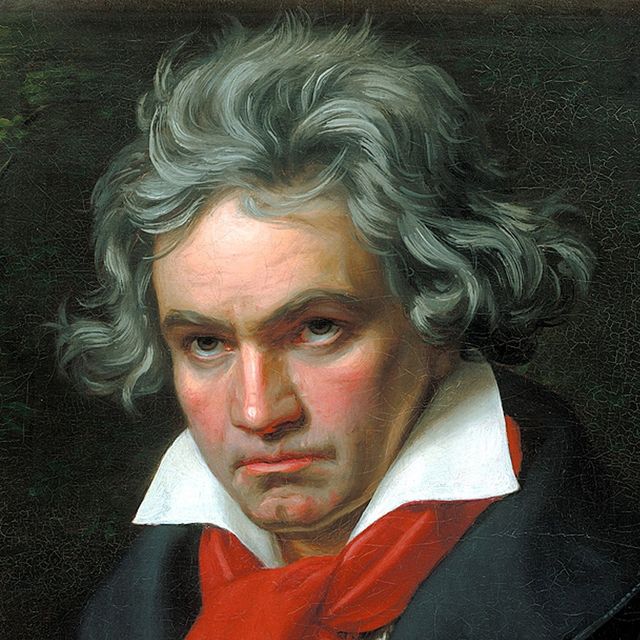
(1770-1827)

Who Was Ludwig van Beethoven?
Ludwig van Beethoven was a German pianist and composer widely considered to be one of the greatest musical geniuses of all time. His innovative compositions combined vocals and instruments, widening the scope of sonata, symphony, concerto and quartet. He is the crucial transitional figure connecting the Classical and Romantic ages of Western music.
Beethoven’s personal life was marked by a struggle against deafness, and some of his most important works were composed during the last 10 years of his life, when he was quite unable to hear. He died at the age of 56.
Controversial Birthday
Beethoven was born on or about December 16, 1770, in the city of Bonn in the Electorate of Cologne, a principality of the Holy Roman Empire. Although his exact date of birth is uncertain, Beethoven was baptized on December 17, 1770.
As a matter of law and custom, babies at the time were baptized within 24 hours of birth, so December 16 is his most likely birthdate.
However, Beethoven himself mistakenly believed that he was born two years later, in 1772, and he stubbornly insisted on the incorrect date even when presented with official papers that proved beyond any reasonable doubt that 1770 was his true birth year.
Beethoven had two younger brothers who survived into adulthood: Caspar, born in 1774, and Johann, born in 1776. Beethoven's mother, Maria Magdalena van Beethoven, was a slender, genteel, and deeply moralistic woman.
His father, Johann van Beethoven, was a mediocre court singer better known for his alcoholism than any musical ability. However, Beethoven's grandfather, godfather and namesake, Kapellmeister Ludwig van Beethoven, was Bonn's most prosperous and eminent musician, a source of endless pride for young Beethoven.
Childhood Abuse
Sometime between the births of his two younger brothers, Beethoven's father began teaching him music with an extraordinary rigor and brutality that affected him for the rest of his life.
Neighbors provided accounts of the small boy weeping while he played the clavier, standing atop a footstool to reach the keys, his father beating him for each hesitation or mistake.
On a near daily basis, Beethoven was flogged, locked in the cellar and deprived of sleep for extra hours of practice. He studied the violin and clavier with his father as well as taking additional lessons from organists around town. Whether in spite of or because of his father's draconian methods, Beethoven was a prodigiously talented musician from his earliest days.
Meanwhile, the musical prodigy attended a Latin grade school named Tirocinium, where a classmate said, "Not a sign was to be discovered of that spark of genius which glowed so brilliantly in him afterwards."
Beethoven, who struggled with sums and spelling his entire life, was at best an average student, and some biographers have hypothesized that he may have had mild dyslexia. As he put it himself, "Music comes to me more readily than words."
In 1781, at the age of 10, Beethoven withdrew from school to study music full time with Christian Gottlob Neefe, the newly appointed Court Organist, and at the age of 12, Beethoven published his first composition, a set of piano variations on a theme by an obscure classical composer named Dressler.
By 1784, his alcoholism worsening and his voice decaying, Beethoven's father was no longer able to support his family, and Beethoven formally requested an official appointment as Assistant Court Organist. Despite his youth, his request was accepted, and Beethoven was put on the court payroll with a modest annual salary of 150 florins.
Beethoven and Mozart
There is only speculation and inconclusive evidence that Beethoven ever met with Mozart, let alone studied with him. In an effort to facilitate his musical development, in 1787 the court sent Beethoven to Vienna, Europe’s capital of culture and music, where he hoped to study with Mozart.
Tradition has it that, upon hearing Beethoven, Mozart said, "Keep your eyes on him; someday he will give the world something to talk about.”
After only a few weeks in Vienna, Beethoven learned that his mother had fallen ill and he returned home to Bonn. Remaining there, Beethoven continued to carve out his reputation as the city's most promising young court musician.
Early Career as a Composer
When the Holy Roman Emperor Joseph II died in 1790, a 19-year-old Beethoven received the immense honor of composing a musical memorial in his honor. For reasons that remain unclear, Beethoven's composition was never performed, and most assumed the young musician had proven unequal to the task.
However, more than a century later, Johannes Brahms discovered that Beethoven had in fact composed a "beautiful and noble" piece of music entitled Cantata on the Death of Emperor Joseph II . It is now considered his earliest masterpiece.
DOWNLOAD BIOGRAPHY'S LUDWIG VAN BEETHOVEN'S FACT CARD
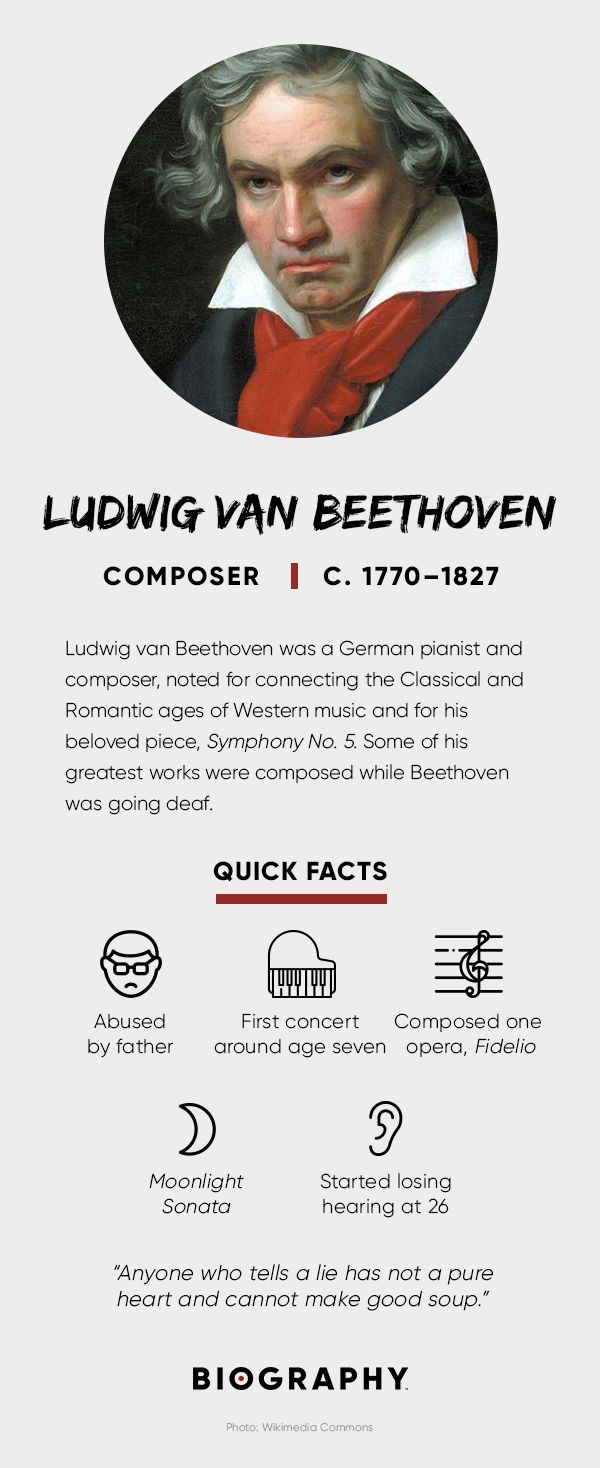
Beethoven and Haydn
In 1792, with French revolutionary forces sweeping across the Rhineland into the Electorate of Cologne, Beethoven decided to leave his hometown for Vienna once again. Mozart had passed away a year earlier, leaving Joseph Haydn as the unquestioned greatest composer alive.
Haydn was living in Vienna at the time, and it was with Haydn that the young Beethoven now intended to study. As his friend and patron Count Waldstein wrote in a farewell letter, "Mozart's genius mourns and weeps over the death of his disciple. It found refuge, but no release with the inexhaustible Haydn; through him, now, it seeks to unite with another. By means of assiduous labor you will receive the spirit of Mozart from the hands of Haydn."
In Vienna, Beethoven dedicated himself wholeheartedly to musical study with the most eminent musicians of the age. He studied piano with Haydn, vocal composition with Antonio Salieri and counterpoint with Johann Albrechtsberger. Not yet known as a composer, Beethoven quickly established a reputation as a virtuoso pianist who was especially adept at improvisation.
Debut Performance
Beethoven won many patrons among the leading citizens of the Viennese aristocracy, who provided him with lodging and funds, allowing Beethoven, in 1794, to sever ties with the Electorate of Cologne. Beethoven made his long-awaited public debut in Vienna on March 29, 1795.
Although there is considerable debate over which of his early piano concerti he performed that night, most scholars believe he played what is known as his "first" piano concerto in C Major. Shortly thereafter, Beethoven decided to publish a series of three piano trios as his Opus 1, which were an enormous critical and financial success.
In the first spring of the new century, on April 2, 1800, Beethoven debuted his Symphony No. 1 in C major at the Royal Imperial Theater in Vienna. Although Beethoven would grow to detest the piece — "In those days I did not know how to compose," he later remarked — the graceful and melodious symphony nevertheless established him as one of Europe's most celebrated composers.
As the new century progressed, Beethoven composed piece after piece that marked him as a masterful composer reaching his musical maturity. His Six String Quartets, published in 1801, demonstrate complete mastery of that most difficult and cherished of Viennese forms developed by Mozart and Haydn.
Beethoven also composed The Creatures of Prometheus in 1801, a wildly popular ballet that received 27 performances at the Imperial Court Theater. It was around the same time that Beethoven discovered he was losing his hearing.
Personal Life
For a variety of reasons that included his crippling shyness and unfortunate physical appearance, Beethoven never married or had children. He was, however, desperately in love with a married woman named Antonie Brentano.
Over the course of two days in July of 1812, Beethoven wrote her a long and beautiful love letter that he never sent. Addressed "to you, my Immortal Beloved," the letter said in part, "My heart is full of so many things to say to you — ah — there are moments when I feel that speech amounts to nothing at all — Cheer up — remain my true, my only love, my all as I am yours."
The death of Beethoven's brother Caspar in 1815 sparked one of the great trials of his life, a painful legal battle with his sister-in-law, Johanna, over the custody of Karl van Beethoven, his nephew and her son.
The struggle stretched on for seven years, during which both sides spewed ugly defamations at the other. In the end, Beethoven won the boy's custody, though hardly his affection.
Despite his extraordinary output of beautiful music, Beethoven was lonely and frequently miserable throughout his adult life. Short-tempered, absent-minded, greedy and suspicious to the point of paranoia, Beethoven feuded with his brothers, his publishers, his housekeepers, his pupils and his patrons.
In one illustrative incident, Beethoven attempted to break a chair over the head of Prince Lichnowsky, one of his closest friends and most loyal patrons. Another time he stood in the doorway of Prince Lobkowitz's palace shouting for all to hear, "Lobkowitz is a donkey!"
For years, rumors have swirled that Beethoven had some African ancestry. These unfounded tales may be based on Beethoven's dark complexion or the fact that his ancestors came from a region of Europe that had once been invaded by the Spanish, and Moors from northern Africa were part of Spanish culture.
A few scholars have noted that Beethoven seemed to have an innate understanding of the polyrhythmic structures typical to some African music. However, no one during Beethoven's lifetime referred to the composer as Moorish or African, and the rumors that he was Black are largely dismissed by historians.
Was Beethoven Deaf?
At the same time as Beethoven was composing some of his most immortal works, he was struggling to come to terms with a shocking and terrible fact, one that he tried desperately to conceal: He was going deaf.
By the turn of the 19th century, Beethoven struggled to make out the words spoken to him in conversation.
Beethoven revealed in a heart-wrenching 1801 letter to his friend Franz Wegeler, "I must confess that I lead a miserable life. For almost two years I have ceased to attend any social functions, just because I find it impossible to say to people: I am deaf. If I had any other profession, I might be able to cope with my infirmity; but in my profession it is a terrible handicap."
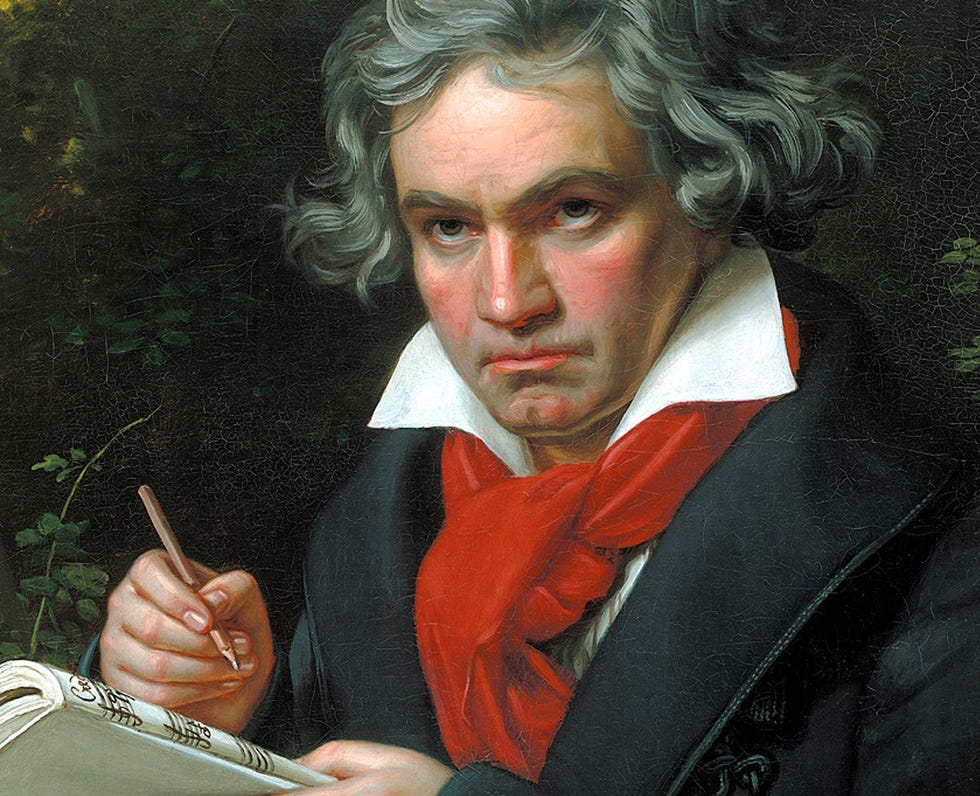
Heiligenstadt Testament
At times driven to extremes of melancholy by his affliction, Beethoven described his despair in a long and poignant note that he concealed his entire life.
Dated October 6, 1802, and referred to as "The Heiligenstadt Testament," it reads in part: "O you men who think or say that I am malevolent, stubborn or misanthropic, how greatly do you wrong me. You do not know the secret cause which makes me seem that way to you and I would have ended my life — it was only my art that held me back. Ah, it seemed impossible to leave the world until I had brought forth all that I felt was within me."
Almost miraculously, despite his rapidly progressing deafness, Beethoven continued to compose at a furious pace.
Moonlight Sonata
From 1803 to 1812, what is known as his "middle" or "heroic" period, he composed an opera, six symphonies, four solo concerti, five string quartets, six-string sonatas, seven piano sonatas, five sets of piano variations, four overtures, four trios, two sextets and 72 songs.
The most famous among these were the haunting Moonlight Sonata, symphonies No. 3-8, the Kreutzer violin sonata and Fidelio , his only opera.
In terms of the astonishing output of superlatively complex, original and beautiful music, this period in Beethoven's life is unrivaled by any other composer in history.
Beethoven’s Music
Some of Beethoven’s best-known compositions include:
Eroica: Symphony No. 3
In 1804, only weeks after Napoleon Bonaparte proclaimed himself Emperor of France, Beethoven debuted his Symphony No. 3 in Napoleon's honor. Beethoven, like all of Europe, watched with a mixture of awe and terror; he admired, abhorred and, to an extent, identified with Napoleon, a man of seemingly superhuman capabilities, only one year older than himself and also of obscure birth.
Later renamed the Eroica Symphony because Beethoven grew disillusioned with Napoleon, it was his grandest and most original work to date.
Because it was so unlike anything heard before it, the musicians could not figure out how to play it through weeks of rehearsal. A prominent reviewer proclaimed "Eroica" as "one of the most original, most sublime, and most profound products that the entire genre of music has ever exhibited."
Symphony No. 5
One of Beethoven’s best-known works among modern audiences, Symphony No. 5 is known for its ominous first four notes.
Beethoven began composing the piece in 1804, but its completion was delayed a few times for other projects. It premiered at the same time as Beethoven’s Symphony No. 6, in 1808 in Vienna.
In 1810, Beethoven completed Fur Elise (meaning “For Elise”), although it was not published until 40 years after his death. In 1867, it was discovered by a German music scholar, however Beethoven’s original manuscript has since been lost.
Some scholars have suggested it was dedicated to his friend, student and fellow musician, Therese Malfatti, to whom he allegedly proposed around the time of the song’s composition. Others said it was for the German soprano Elisabeth Rockel, another friend of Beethoven’s.
Symphony No. 7
Premiering in Vienna in 1813 to benefit soldiers wounded in the battle of Hanau, Beethoven began composing this, one of his most energetic and optimistic works, in 1811.
The composer called the piece “his most excellent symphony." The second movement is often performed separately from the rest of the symphony and may have been one of Beethoven’s most popular works.
Missa Solemnis
Debuting in 1824, this Catholic mass is considered among Beethoven’s finest achievements. Just under 90 minutes in length, the rarely-performed piece features a chorus, orchestra and four soloists.
Ode to Joy: Symphony No. 9
Beethoven’s ninth and final symphony, completed in 1824, remains the illustrious composer's most towering achievement. The symphony's famous choral finale, with four vocal soloists and a chorus singing the words of Friedrich Schiller's poem "Ode to Joy," is perhaps the most famous piece of music in history.
While connoisseurs delighted in the symphony's contrapuntal and formal complexity, the masses found inspiration in the anthem-like vigor of the choral finale and the concluding invocation of "all humanity."
String Quartet No. 14
Beethoven’s String Quartet No. 14 debuted in 1826. About 40 minutes in length, it contains seven linked movements played without a break.
The work was reportedly one of Beethoven’s favorite later quartets and has been described as one of the composer’s most elusive compositions musically.
Beethoven died on March 26, 1827, at the age of 56, of post-hepatitic cirrhosis of the liver.
The autopsy also provided clues to the origins of his deafness: While his quick temper, chronic diarrhea and deafness are consistent with arterial disease, a competing theory traces Beethoven's deafness to contracting typhus in the summer of 1796.
Scientists analyzing a remaining fragment of Beethoven's skull noticed high levels of lead and hypothesized lead poisoning as a potential cause of death, but that theory has been largely discredited.
Beethoven is widely considered one of the greatest, if not the single greatest, composer of all time. Beethoven's body of musical compositions stands with William Shakespeare 's plays at the outer limits of human brilliance.
And the fact Beethoven composed his most beautiful and extraordinary music while deaf is an almost superhuman feat of creative genius, perhaps only paralleled in the history of artistic achievement by John Milton writing Paradise Lost while blind.
Summing up his life and imminent death during his last days, Beethoven, who was never as eloquent with words as he was with music, borrowed a tagline that concluded many Latin plays at the time. Plaudite, amici, comoedia finita est , he said. "Applaud friends, the comedy is over."
QUICK FACTS
- Name: Ludwig Beethoven
- Birth Year: 1770
- Birth date: December 16, 1770
- Birth City: Bonn
- Birth Country: Germany
- Gender: Male
- Best Known For: Ludwig van Beethoven was a German composer whose Symphony 5 is a beloved classic. Some of his greatest works were composed while Beethoven was going deaf.
- Astrological Sign: Sagittarius
- Nacionalities
- Interesting Facts
- Beethoven's father was an alcoholic who beat his son into practicing music.
- Many of Beethoven's most accomplished works were created during the time he was deaf.
- Death Year: 1827
- Death date: March 26, 1827
- Death City: Vienna
- Death Country: Austria
We strive for accuracy and fairness.If you see something that doesn't look right, contact us !
CITATION INFORMATION
- Article Title: Ludwig van Beethoven Biography
- Author: Biography.com Editors
- Website Name: The Biography.com website
- Url: https://www.biography.com/musicians/ludwig-van-beethoven
- Access Date:
- Publisher: A&E; Television Networks
- Last Updated: July 13, 2021
- Original Published Date: April 3, 2014
- Never shall I forget the time I spent with you. Please continue to be my friend, as you will always find me yours.
- Anyone who tells a lie has not a pure heart and cannot make good soup.
- Love demands all and has a right to all.
- Recommend to your children virtues that alone can make them happy. Not gold.
- I shall seize fate by the throat.
- Music is the mediator between the spiritual and sensual life.
- To play without passion is inexcusable!
- Ever thine, ever mine, ever ours.
- Don't only practice your art, but force your way into its secrets, for it and knowledge can raise men to the divine.
- Music is a higher revelation than all wisdom and philosophy.
Watch Next .css-smpm16:after{background-color:#323232;color:#fff;margin-left:1.8rem;margin-top:1.25rem;width:1.5rem;height:0.063rem;content:'';display:-webkit-box;display:-webkit-flex;display:-ms-flexbox;display:flex;}
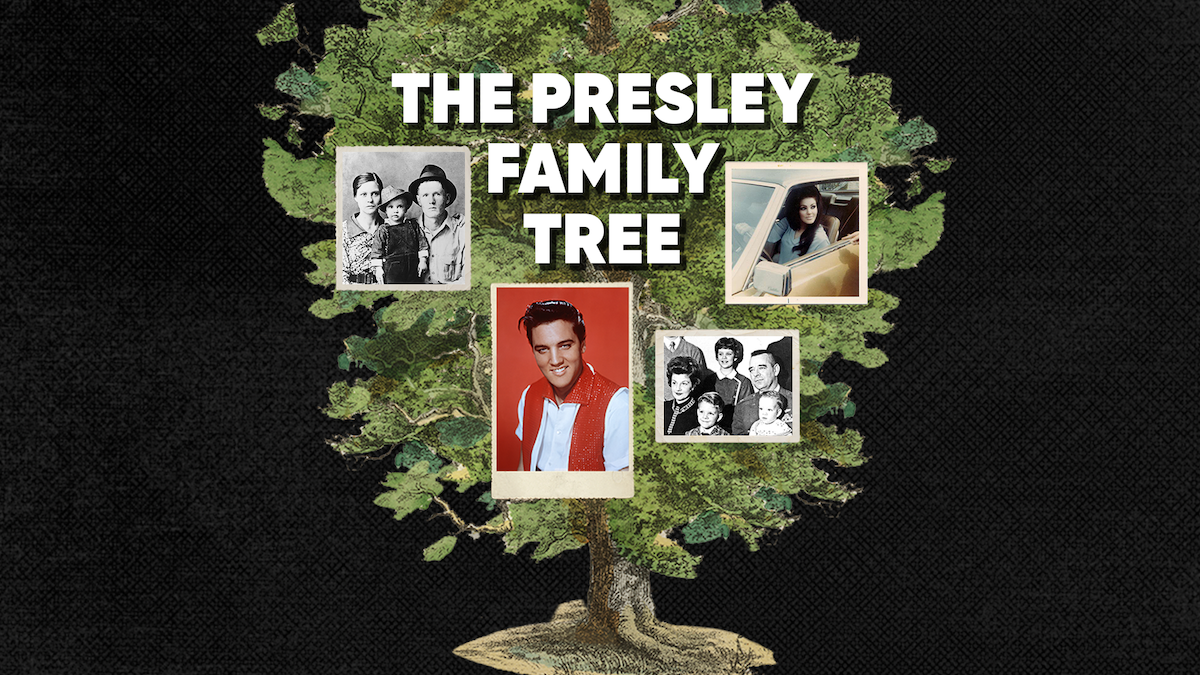
Classical Musicians
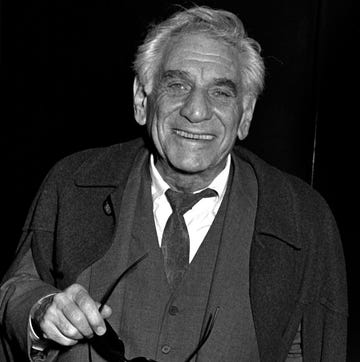
The True Story of Leonard Bernstein’s Marriage
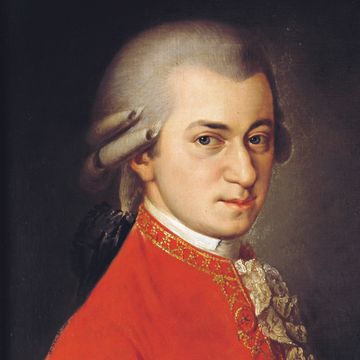
Wolfgang Mozart
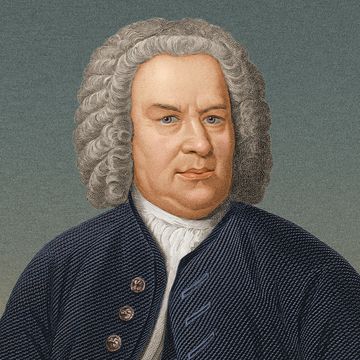
Johann Sebastian Bach
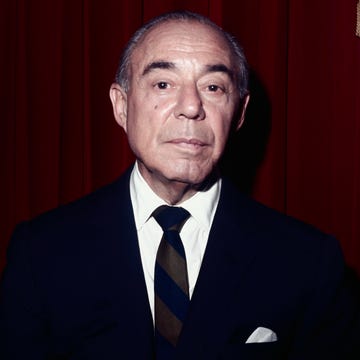
Richard Rodgers
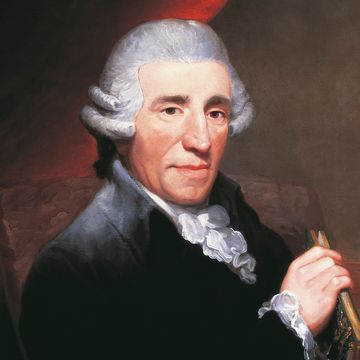
Franz Joseph Haydn
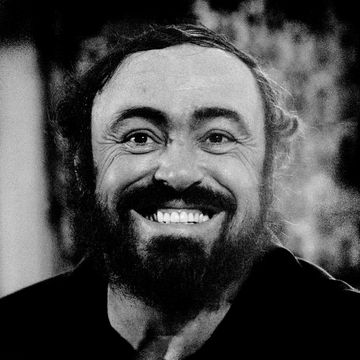
Luciano Pavarotti
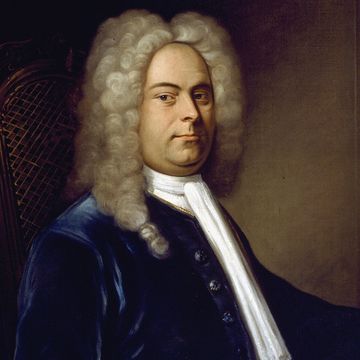
George Frideric Handel
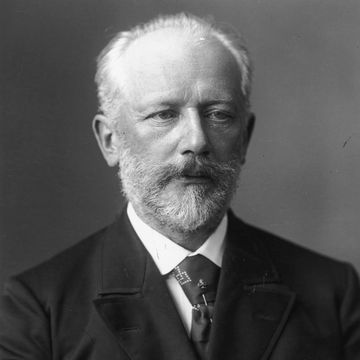
Pyotr Ilyich Tchaikovsky
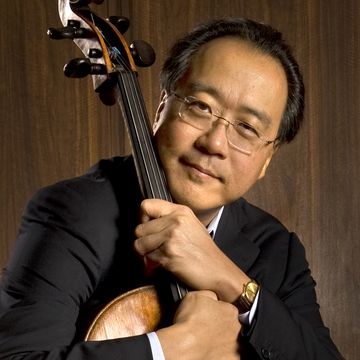
Hector Berlioz
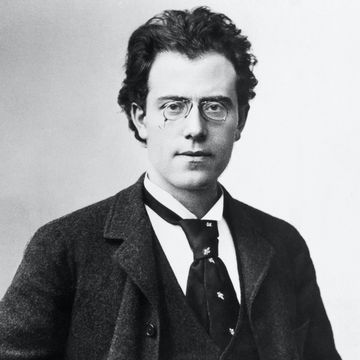
Gustav Mahler
- Indie 102.3
The Life And Legacy Of Beethoven: A Timeline

Beethoven lived in a time of revolution. The American Revolution began just after he was born and the French Revolution ignited when he was a coming-of-age 18-year-old. The ideals of these revolutions – liberty, self-determination, the breaking down of the class structure based on birth – all shaped Beethoven’s mindset and his music. How could his music not be revolutionary with so much social change going on around him?
(Click on the image below to see a larger timeline.)
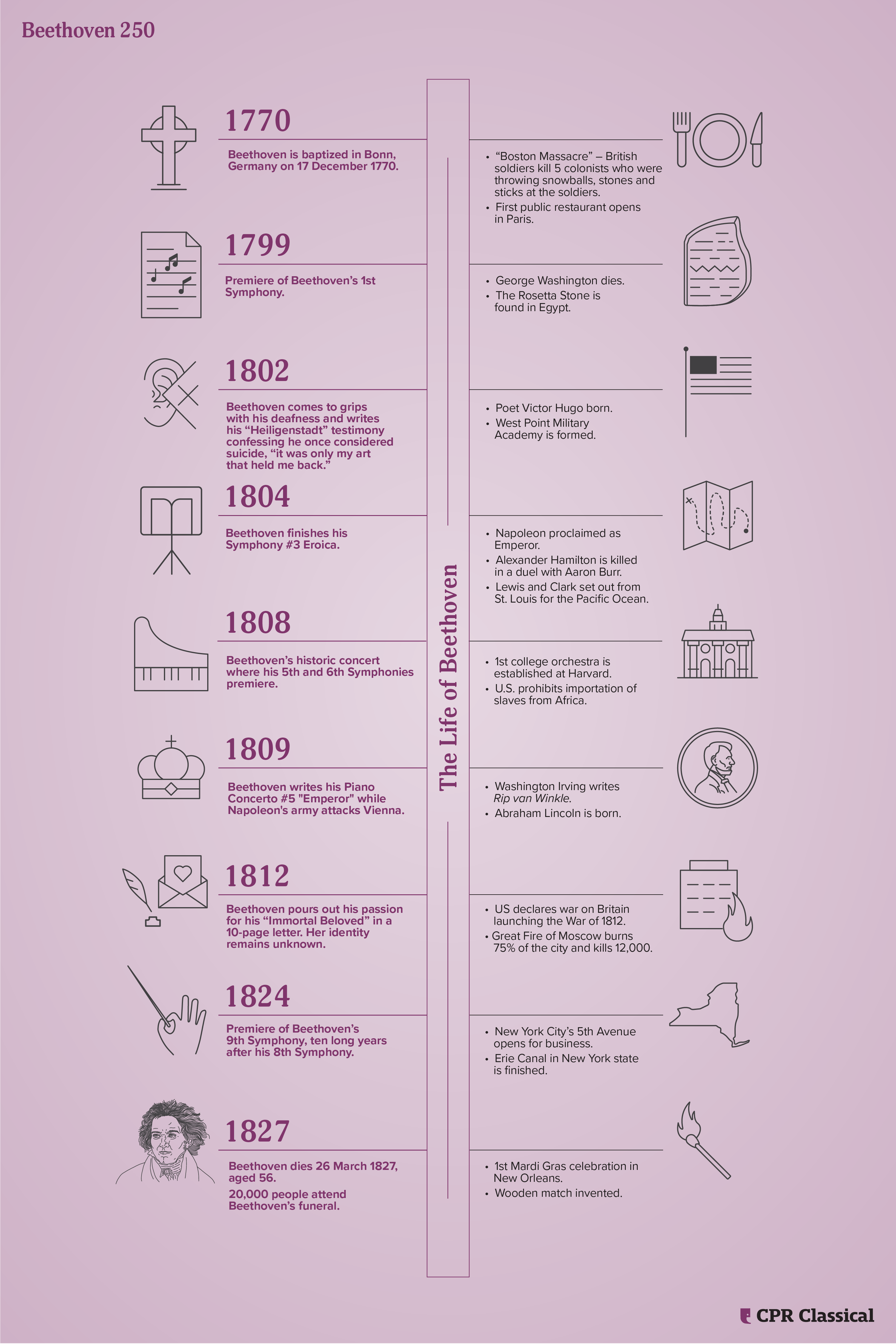
Love Classical Music?
Stay in touch with our hosting team at CPR Classical and learn more about the classical events occurring in the community. Sign up here for our monthly newsletter.
Latest Stories

First few months of Grand Junction’s unhoused resource center spark early optimism

Are you ready to get your spring gardening on? Get set with these plant sales around southern Colorado

47-year-old cold case in Colorado Springs solved

Lawmakers approved more funding for RTD, but couldn’t agree on how to reform it

Sign Up For Our Newsletters
It takes a good day’s drive to cover Colorado, but we’ll help you do it in a few minutes. Our newsletters bring you a closer look at the stories that affect you and the music that inspires you.
- Get A Newsletter From The Climate Team
- Sign Up For The Lookout
- Sign Up For The Quotie Monthly
- Get The Inside Track On Denver Music
- Classical Music Playlists And More
Upcoming Events
A half-century of pride stories, indie 102.3 pride party with empress of, turn the page with colorado matters: “our moon”, listen to a colorado postcard.

Colorado Postcards are snapshots of our colorful state in sound. They give brief insights into our people and places, our flora and fauna, and our past and present, from every corner of Colorado. Listen now.
Ludwig van Beethoven - Biography
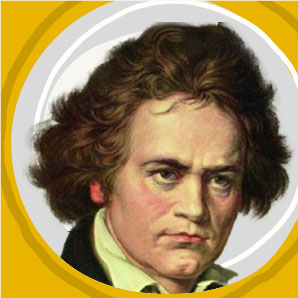
Ludwig van Beethoven Biography
Ludwig van Beethoven (baptized December 17, 1770 – March 26, 1827) was a German composer of Classical music , the predominant musical figure in the transitional period between the Classical and Romantic eras. He is widely regarded as one of the greatest of composers, and his reputation inspired – and in some cases intimidated – composers, musicians, and audiences who were to come after him.
Life and work
Beethoven was born in Bonn , Germany , to Johann van Beethoven (1740-1792), of Flemish origins, and Magdalena Keverich van Beethoven (1744-1787). Until relatively recently 16 December was shown in many reference works as Beethoven's 'date of birth', since we know he was baptised on 17 December and children at that time were generally baptised the day after their birth. However modern scholarship declines to rely on such assumptions.
Beethoven's first music teacher was his father, who worked as a musician in the Electoral court at Bonn, but was also an alcoholic who beat him and unsuccessfully attempted to exhibit him as a child prodigy . However, Beethoven's talent was soon noticed by others. He was given instruction and employment by Christian Gottlob Neefe , as well as financial sponsorship by the Prince-Elector. Beethoven's mother died when he was 17, and for several years he was responsible for raising his two younger brothers.
Beethoven moved to Vienna in 1792, where he studied with Joseph Haydn and other teachers. He quickly established a reputation as a piano virtuoso , and more slowly as a composer. He settled into the career pattern he would follow for the remainder of his life: rather than working for the church or a noble court (as most composers before him had done), he was a freelancer , supporting himself with public performances, sales of his works, and stipends from noblemen who recognized his ability.
Beethoven's career as a composer is usually divided into Early, Middle, and Late periods.
In the Early period, he is seen as emulating his great predecessors Haydn and Mozart , at the same time exploring new directions and gradually expanding the scope and ambition of his work. Some important pieces from the Early period are the first and second symphonies, the first six string quartets , the first two piano concertos , and about a dozen piano sonatas , including the famous 'Path�tique' .
The Middle period began shortly after Beethoven's personal crisis centering around deafness , and is noted for large-scale works expressing heroism and struggle; these include many of the most famous works of classical music. The Middle period works include six symphonies (Nos. 3 – 8), the last three piano concertos and his only violin concerto , six string quartets (Nos. 7 – 11), many piano sonatas (including the 'Moonlight' , 'Waldstein' , and 'Appassionata' ), and Beethoven's only opera, Fidelio .
Beethoven's Late period began around 1816 and lasted until Beethoven ceased to compose in 1826. The late works are greatly admired for their intellectual depth and their intense, highly personal expression. They include the Ninth Symphony (the 'Choral'), the Missa Solemnis , the last six string quartets and the last five piano sonatas.
Beethoven's personal life was troubled. Around age 28 he started to become deaf, a calamity which led him for some time to contemplate suicide . He was attracted to unattainable (married or aristocratic) women, whom he idealized; he never married. A period of low productivity from about 1812 to 1816 is thought by some scholars to have been the result of depression , resulting from Beethoven's realization that he would never marry. Beethoven quarreled, often bitterly, with his relatives and others, and frequently behaved badly to other people. He moved often from dwelling to dwelling, and had strange personal habits such as wearing filthy clothing while washing compulsively. He often had financial troubles.
It is common for listeners to perceive an echo of Beethoven's life in his music, which often depicts struggle followed by triumph. This description is often applied to Beethoven's creation of masterpieces in the face of his severe personal difficulties.
Beethoven was often in poor health, and in 1826 his health took a drastic turn for the worse. His death in the following year is usually attributed to liver disease.
(See also History of sonata form , Romantic music )
Musical style and innovations
Beethoven is viewed as a transitional figure between the Classical and Romantic eras of musical history. As far as musical form is concerned, he built on the principles of sonata form and motivic development that he had inherited from Haydn and Mozart, but greatly extended them, writing longer and more ambitious movements. The work of Beethoven's Middle period is celebrated for its frequently heroic expression, and the works of his Late period for their intellectual depth.
Personal beliefs and their musical influence
Beethoven was much taken by the ideals of the Enlightenment and by the growing Romanticism in Europe. He initially dedicated his third symphony, the Eroica (Italian for 'heroic'), to Napoleon in the belief that the general would sustain the democratic and republican ideals of the French Revolution , but in 1804 crossed out the dedication as Napoleon's imperial ambitions became clear, replacing it with 'to the memory of a great man'. The fourth movement of his Ninth Symphony features an elaborate choral setting of Schiller 's ode An die Freude ('To Joy'), an optimistic hymn championing the brotherhood of humanity.
Scholars disagree on Beethoven's religious beliefs and the role they played in his work. For discussion, see Beethoven's religious beliefs .
Beethoven the Romantic?
A continuing controversy surrounding Beethoven is whether he was a Romantic composer. As documented elsewhere, since the meanings of the word 'Romantic' and the definition of the period 'Romanticism' both vary by discipline, Beethoven's inclusion as a member of that movement or period must be looked at in context.
If we consider the Romantic movement as an aesthetic epoch in literature and the arts generally, Beethoven sits squarely in the first half, along with literary Romantics such as the German poets Goethe and Schiller (whose texts both he and the much more straightforwardly Romantic Franz Schubert drew on for songs), and the English poet Percy Shelley . He was also called a Romantic by contemporaries such as Spohr and E.T.A. Hoffman . He is often considered the composer of the first Song Cycle , and was influenced by Romantic folk idioms, for example in his use of the work of Robert Burns . He set dozens of such poems (and arranged folk melodies) for voice, piano, and violin.
If on the other hand we consider the context of musicology , where ' Romanticism ' is dated later, the matter is one of considerably greater debate. For some experts Beethoven is not a Romantic, and his being one is 'a myth'; for others he stands as a transitional figure, or an immediate precursor to Romanticism; for others he is the prototypical, or even archetypical, Romantic composer, complete with myth of heroic genius and individuality. The marker buoy of Romanticism has been pushed back and forth several times by scholarship, and remains a subject of intense debate, in no small part because Beethoven is seen as a seminal figure. To those for whom the Enlightenment represents the basis of Modernity , he must therefore be unequivocally a Classicist, while for those who see the Romantic sensibility as a key to later aesthetics (including the aesthetics of our own time), he must be a Romantic. Between these two extremes there are, of course, innumerable gradations.
- Category:Beethoven compositions
- List of works by Beethoven is a listing of most of Beethoven's works, including links to all of the works discussed in their own Wikipedia article.
- Three-key exposition
External links
- Ludwig van Beethoven: A Musical Titan ( http://www.carolinaclassical.com/articles/beethoven.html )
- Wikiquote - Quotes by and about Ludwig van Beethoven ( http://wikiquote.org/wiki/Ludwig_van_Beethoven )
- Works of Beethoven (including some sheet music) ( http://www.gutenberg.net/author/Beethoven,+Ludwig+van ) from Project Gutenberg
- Beethoven's Heiligenstadt Testament ( http://w3.rz-berlin.mpg.de/cmp/beethoven_heiligenstadt.html )
- Ludwig van Beethoven ( http://klasyka.host.sk/en/kompozytor.php?k=beethoven ) from Encyclopedia of Composers ( http://klasyka.host.sk/en/ )
- Piano Society.com - Beethoven ( http://www.pianosociety.com/index.php?id=12 ) (A small biography and various free recordings)
- Beethoven's Sheet Music ( http://www.mutopiaproject.org/cgibin/make-table.cgi?Composer=BeethovenLv&preview=1 ) by Mutopia Project
- Beethoven Haus Bonn ( http://www.beethoven-haus-bonn.de ) , contains a large archive of historic and modern documents related to Beethoven
- Article about Beethoven’s study of Bach, as it relates to his music ( http://www.schillerinstitute.org/fid_97-01/002-3bach_beethoven.html ) (and to this work)
- Beethoven Website ( http://www.beethoven.ws ) , features Beethoven's biography, timeline and pictures.
- Money Back Guarantee
- Privacy Policy
- Help Us Improve!
- Our Insiders
- Choral & Song
- Instrumental
- Great Recordings
- Musical terms
- TV and Film music
- Instruments
- Audio Equipment
- Free Download
- Listen to Radio 3
- Subscriber FAQ
- 2023 Awards
- 2024 Awards
Ludwig van Beethoven: a force of nature at the dawn of Romanticism
John Suchet profiles Ludwig van Beethoven - the composer who sparked a musical revolution
Read on for our guide to the life and music of perhaps the most influential composer in the history of classical music: Ludwig van Beethoven.
Who was Beethoven?
Beethoven was not only one of the greatest composers of all time - but also something of a revolutionary. Not just in the obvious sense that his compositions took music in a new direction.
- The 50 greatest composers of all time
He was an artist imbued with the idea of revolution. Crucial to a full appreciation of Beethoven’s music is a knowledge of the times in which he lived, an understanding of the tumultuous events sweeping across Europe, bringing with them new orders and new ideas.
When and where was Beethoven born?
Bonn, where Beethoven was born in December 1770 , was an outpost of the Habsburg Empire . It was small, prosperous and sophisticated due to the fact that it was the seat of the Elector of Cologne and Münster. On the surface it was also conservative.
But Vienna – capital city of the Holy Roman Empire, formal and proper, with a growing network of spies, where dissent was not tolerated – was 500 miles and several days’ coach ride away. And so the burghers of Bonn, not to mention the elector, were prone to making decisions almost calculated to upset those at the heart of government.
Where did Beethoven grow up?
The young Beethoven remained in the town of his birth, Bonn, until the age of 21.
The first of these to have a lasting impact on the young musical prodigy in Bonn was the employment as court organist not only of an outsider, from Saxony, but a man of the wrong religion too. A Protestant, no less, who wasted no time in joining the proscribed organisation of like-minded dissidents, the Illuminati .
No one knows what persuaded the largely incapable and alcoholic Johann van Beethoven to employ Christian Gottlob Neefe as teacher to his son Ludwig, but it was an inspired choice. It does not take too much imagination to see Neefe, as well as encouraging his young pupil’s first attempts at composition, filling his head with ideas of religion, philosophy and politics. Neefe radicalised Beethoven.
An early breakthrough
Before Beethoven was ten, the old order passed with the death of Empress Maria Theresa . Emperor Joseph put in place immediate reforms, stripping the clergy of much of their power, introducing a measure of freedom of worship, and pushing through emancipation of the peasantry before he died, just 48, in 1790.
- Six of the best: Beethoven's overlooked works
- The best recordings of Beethoven's symphonies
That was when the musical establishment of Bonn took a truly extraordinary decision. They decided to commission a work to commemorate Joseph’s death, which would set to music words by a local poet, which in lauding Joseph’s break with the past were political dynamite, as well as a second piece to mark the accession of the new emperor.
And instead of choosing one of the several senior and respected musicians at court, they awarded the commission to the 19-year-old Ludwig van Beethoven. No matter that the orchestra refused to perform the pieces because they considered them unplayable, from these two Cantatas on, Beethoven would always be a political composer.
- Sir Simon Rattle discusses recording Beethoven with the Berlin Philharmonic
- The best recordings of Fanny Mendelssohn's String Quartet
When did B eethoven arrive in Vienna?
He left Bonn for Vienna in November 1792, never to return. At the time, Paris was undergoing the single most cataclysmic event of the age. Three years earlier the people had stormed the Bastille , initiating the French Revolution. Louis XVI and his Queen were under arrest. The King would go to the guillotine within two months, Marie Antoinette a matter of months after that. It was not long before the French set about exporting their revolution, a task made easier by the fortune that one of their citizens was on his way to becoming the greatest military commander in history. Vienna was steeped in old-world tradition and was therefore most vulnerable to the new French Revolutionary Army. It was a city living in fear.
While lauding the aims of the French Revolution, Beethoven condemned outright the violence and bloodletting it had led to. He also deplored the French occupation of Bonn and the Rhineland. But this revolutionary young composer had found a hero in the First Consul of France, Napoleon Bonaparte , to whom he dedicated the Eroica Symphony , the work that famously propelled music into the 19th century.
Napoleon and the Eroica
When Napoleon appointed himself Emperor, Beethoven withdrew the dedication, declaring him to be nothing more than a tyrant after all. Still, Beethoven could not help admiring Napoleon. The title page of the first edition bore the words: Sinfonia Eroica... per festeggiare il sovvenire di un grand Uomo [Heroic Symphony... to celebrate the memory of a great man], and Beethoven wrote to his publisher that ‘the title of the symphony is really Bonaparte ’.
The influence of the Revolution stayed with Beethoven. The French composer Méhul, much admired by the revolutionaries, composed five symphonies in this period. All four movements of his First Symphony bear striking stylistic similarities to Beethoven’s Fifth – regarded as the epitome of revolutionary musical writing – and both were composed in the same year.
Beethoven and Méhul
Who influenced whom? One suspects that if you suggested to Beethoven that he was influenced by Méhul, he would probably agree, and say that the revolutionary theme of his only opera, Fidelio , was also influenced by themes used by Méhul in his operas.
Several times in adult life, Beethoven actively contemplated a move to Paris – surely a desire to experience revolutionary times at first hand. In fact in 1808, an annus horribilis for him, plans for the move were well advanced. It never, of course, happened. After Napoleon’s final defeat and exile, Vienna, with the autocratic Metternich running things, was more or less shut down. There were secret police everywhere.
- How did Beethoven cope with going deaf?
- Five of the best Beethoven piano sonata cycles on disc
Beethoven, by now deaf, had only one outlet for his ideas, and that was music. No wonder his compositions gave a new meaning to the world ‘revolutionary’. There had never been a piano sonata like the Hammerklavier . No composer had ever used voices in a symphony, as Beethoven would in his Ninth . The final Piano Sonata, Op. 111 shows his radical approach to form and his revolutionary brilliance stands out in every movement of his five Late Quartets, simply the greatest body of music ever composed.
When and why did Beethoven go deaf?
It is believed that Beethoven began to lose his hearing in his mid twenties. The cause of his hearing loss remains something of a mystery, though modern analysis of the composer's DNA has revealed some health issues - including large amounts of lead in his system.
Beethoven later claimed that his deafness had its origins in a quarrel with a singer, back in 1798. In 1801, he wrote to friends describing his symptoms and how they were making life difficult for him, both as a composer and in society.
Then came the famous Heiligenstadt Testament . Beethoven spent around six months of the year 1802 in the small Austrian town of Heiligenstadt , just outside Vienna, on the advice of his doctor. This was where he wrote his famous Testament: a letter to his brothers, in which he reveals that his deafness has made him consider suicide, but that he has resolved to continue living through his art. Never sent, the letter was found among the composer's papers after his death.
Did Beethoven marry?
No. He did meet a young countess, Julie Guicciardi, for whom he developed strong feelings: he writes about his love for her in a letter written to a friend in November 1801.
Sadly, though, the young Beethoven was from humbler origins than Julie, and this class difference meant that a union would have been out of the question.
Then there was Antonie Brentano - a philanthropist, arts patron, and close friend of the composer. While he was at the spa resort of Teplitz in 1812, Beethoven wrote a ten-page love letter to his 'Immortal Beloved' - but the letter was never sent and the addressee never revealed. The identity of the 'Immortal Beloved' has been much discussed, but the musicologist Maynard Solomon has convincingly demonstrated that the intended recipient must have been Antonie Brentano.

When did Beethoven die?
Beethoven died on 26 March 1827 at the age of 56. Some 10,000 people attended his funeral procession six days later - including a young Franz Schubert .
What did Beethoven die of?
The precise cause of Beethoven's death is not known for certain, although cirrhosis of the liver and infectious hepatitis are among those causes put forward.
What were Beethoven's final words?
You may hear the story told that Beethoven's final deathbed words were 'applaud friends, the comedy is ended' (spoken in Latin, no less). In fact, however, we believe that his final words came after a publisher had sent the dying composer 12 bottles of wine as a gift. Beethoven's reaction (and last words)? 'Pity, pity, too late!'.
Did Mozart and Beethoven meet?
The young Ludwig van Beethoven intended to study with Mozart and, in 1787, when Beethoven was 16 and Mozart was 31, the younger composer travelled to Vienna to meet his would-be mentor, However, shortly after his arrival in Vienna, Beethoven's mother fell ill, meaning that he had to return to his hometown of Bonn in Germany.
Beethoven stayed in Bonn for five years, looking after his younger siblings. When he was finally able to undertake the trip to Vienna the great Mozart was, sadly, dead.
What are Beethoven's most famous pieces?
With such an incredible output to his name, this becomes a very thorny question in Beethoven's case. However, we'd certainly nominate the Third, Fifth , and Ninth Symphonies (although the Sixth and Seventh follow close behind, and to be honest all nine are masterpieces).
- The 20 greatest symphonies of all time
- Best of Beethoven: his 20 greatest works
On the concerto front, the Violin Concerto and the final two Piano Concertos are probably the best known.
- The greatest violin concertos of all time
- The greatest piano concertos of all time
Among Beethoven's large and deeply impressive chamber music output, we'd have to single out the 'Archduke' Piano Trio, as well as the late String Quartets mentioned above.
- Lost movement of a Beethoven string quartet reconstructed
Most famous Beethoven sonatas
The best known Beethoven Piano Sonatas include the 'Hammerklavier' Sonata, the 'Moonlight' Sonata , the 'Waldstein' Sonata and the 'Pathétique' Sonata. Scared music lovers, meanwhile, will want to sample Beethoven's great choral work, the Missa Solemnis .
- Five of the best recordings of Beethoven's sonata cycles
How did Beethoven change music?
Like his forebear Bach, and more so than his immediate predecessors Haydn and Mozart, Beethoven had a profound impact on the direction that classical music was taking. Under his influence, some essential classical forms such as the sonata, the concerto, the string quartet and most obviously the symphony became bigger and wider in their ambitions.
Take Beethoven's Ninth Symphony, for example, which both rearranged the formal structure of a Classical symphony, and features - totally originally - the human voice in its final movement. Innovations such as these make Beethoven one of the earliest and best Romantic composers .
Or take the extraordinary 'Hammerklavier' Sonata: no other piano sonata covers such a vast ground, both musical and emotional. The final movement is a vast fugue, a mindblowingly complex composition that makes huge demands on the performer.
- Ten great Beethoven performers
Lastly, Beethoven's final five String Quartets attain a quality of transcendent beauty and emotional eloquence that was, quite simply, without precedent in the chamber music world.
Read reviews of the latest Beethoven recordings here
John Suchet
Share this article

Digital Editor and Staff Writer, BBC Music Magazine

- Privacy policy
- Terms & Conditions
- Cookies policy
- Manage preferences

Timeline: Ludwig van Beethoven, 1815-1827

Originally aired on Jan. 26, 2016
The years 1813 to 1816 were a dry period for Beethoven. He was wrestling with his health and with his family.
His brother, Casper, had passed away and left behind a son, Karl – Beethoven’s beloved nephew. Ludwig entered into a nasty custody battle with Karl’s mother and lost. Beethoven often wrote in his journal prayers that this time of suffering would come to an end.
An answer seemed to come in the fall of 1817. Even though Beethoven was now forced to carry on conversations with pen and paper due to his deafness, he embarked on some of the largest and most celebrated works of his entire catalog. These works include his " Hammerklavier Sonata" (opus 106) and his " Missa Solemnis," which was written for the Archduke (now Archbishop) Rudolph.
But the ultimate expression of this last period of Beethoven’s output has to be his 9 th Symphony. He had been thinking about this work ever since he left Bonn. In a letter dating back to 1793 he expressed his desire to create a choral setting of Schiller’s " Ode to Joy ." He even sketched out a few ideas in 1812, just before his dry period.
But 1823 was the year Beethoven devoted himself to writing this Choral Symphony – marrying voices and orchestra in a new, unique way. At the premiere, Beethoven couldn’t hear the audience’s applause but he could see their standing ovation as they waved hats and handkerchiefs in the air for their beloved composer.
The last three years of Beethoven’s life were devoted almost completely to the composition of string quartets; a genre pioneered by his teacher Papa Haydn. At the time, Beethoven hadn’t written a string quartet for close to 15 years. Though they were all but ignored by his contemporaries, these six late quartets became inspirations to numerous composers who followed after Beethoven. Stravinsky declared that these works would be “contemporary forever.”
1827 began with Beethoven’s health in severe decline. However, it also saw a great outpouring of support as societies from multiple nations sent the dying composer gifts, letters and financial aid.
Beethoven passed away at 5:45 p.m. on March 26, 1827. His funeral, three days later, was attended by 10,000 mourners. His legacy though, lives on.

Timeline is an exploration into the development of Western music. Take a journey into the events, characters and concepts that shaped our Western musical tradition.

WQXR Navigation

A Beethoven Timeline: Events that Shaped the Genius
Post a comment.
Biography of Ludwig van Beethoven, German Composer
no_limit_pictures / Getty Images
- Alternative Music
- Country Music
- Rap & Hip Hop
- Rhythm & Blues
- World Music
- Heavy Metal
- Latin Music
- B.A., Classical Music and Opera, Westminster Choir College of Rider University
Ludwig van Beethoven (December 16, 1770–March 26, 1827) was a German composer and musician. His work embraced a range of musical styles, from the classical to the romantic; although Beethoven composed music for a variety of settings, he is best known for his nine symphonies. His final symphony—featuring the "Ode to Joy" chorus—is one of the most famous works in Western music.
Fast Facts: Ludwig van Beethoven
- Known For : Beethoven is one of the most celebrated composers in the history of classical music; his symphonies are still performed throughout the world.
- Born : December 16, 1770 in Bonn, Electorate of Cologne
- Parents : Johann van Beethoven and Maria Magdalena Keverich
- Died : March 26, 1827 in Vienna, Austria
Beethoven's father Johann van Beethoven sang soprano in the electoral chapel where his father was Kapellmeister (chapel master). Johann eventually became proficient enough to teach violin, piano, and voice to earn a living. He married Maria Magdalena Keverich in 1767. Ludwig van Beethoven was baptized on December 17, 1770. Most scholars believe he was born the day before, as Catholic baptisms traditionally took place the day after birth. Maria later gave birth to five other children, but only two survived, Kaspar Anton Karl and Nikolaus Johann.
At a very early age, Beethoven received violin and piano lessons from his father. At the age of 8, he studied theory and keyboard with Gilles van den Eeden (a former chapel organist). He also studied with several local organists and received piano lessons from Tobias Friedrich Pfeiffer and violin and viola lessons from Franz Rovantini. Although Beethoven’s musical genius is often compared to that of Mozart , his education never exceeded the elementary level.
Teenage Years
As a teenager, Beethoven was the assistant and formal student of Christian Gottlob Neefe, the court organist of the city of Bonn. Beethoven performed more than he composed. In 1787, Neefe sent Beethoven to Vienna for reasons unknown, but many historians agree that while he was there he met and briefly studied with Mozart. Two weeks later, he returned home because his mother was ill with tuberculosis. She died in July. His father took to drink, and Beethoven, only 19 years old, petitioned to be recognized as the head of the house; he received half of his father's salary to support his family.
Music Career
In 1792, Beethoven moved to Vienna. His father died in December that same year. Beethoven studied with Austrian composer Joseph Haydn for less than a year; their personalities were evidently not a match for each other. Beethoven then studied with Johann Georg Albrechtsberger, the most famous teacher of counterpoint in Vienna. He studied counterpoint and contrapuntal exercises in free writing, in imitation, in two to four-part fugues, choral fugues, double counterpoint at different intervals, double fugue , triple counterpoint, and canon.
After establishing himself as a composer, Beethoven began writing more complex works. In 1800, he performed his first symphony and a septet. Publishers soon began to compete for the rights to his newest compositions. While still in his 20s, however, Beethoven began to suffer from hearing loss after a fall. His attitude and social life changed dramatically, as the composer wanted to hide his impairment from the world. Determined to overcome his disability, he wrote his second, third, and fourth symphonies before 1806. Symphony 3, ("Eroica") , was originally titled "Bonaparte" as a tribute to Napoleon.
Middle Period
In 1808, Beethoven completed his fifth symphony, whose opening notes are some of the most famous in all of classical music. This success was followed by several additional symphonies as well as string quartets and piano sonatas, including Fur Elise . During this time, Beethoven also premiered an early version of his opera "Fidelio." The production received poor reviews, and the composer continued to revise the work until 1814.
Beethoven's newfound fame began to pay off, and he soon found himself prosperous. His symphonic works were celebrated as masterpieces; critics cited Mozart, Haydn, and Beethoven as the greatest composers of their era. Nevertheless, Beethoven faced personal challenges during this time. He fell in love with a young countess, Julie Guicciardi, but could not marry her because he was from a lower social station. He later dedicated his "Moonlight Sonata" to her.
Beethoven's output suffered during the next decade, the result of several serious illnesses and the death of his brother Kaspar, whom Beethoven had cared for during his sickness. This was followed by a custody battle with his brother's wife over his nephew Karl. The case was eventually resolved in Beethoven's favor, and the composer became the guardian of his nephew. However, the two had a troubled relationship.
Late Period
During the last 15 years of his life, Beethoven's hearing continued to decline. Nevertheless, he did not cease work on his compositions, and in the years before his death, he finished two of his most ambitious pieces—the Missa Solemnis , a mass written for a small orchestra and mixed choir, and the Ninth Symphony, one of the earliest examples of a choral symphony. The latter features what is perhaps Beethoven's most enduring piece of music—a chorus set to words from Friedrich Schiller's poem "Ode to Joy." Beethoven also wrote several additional string quartets, even as his health began to decline.
In 1827, Beethoven died of dropsy. In a will written several days before his death, he left his estate to his nephew Karl, of whom he was the legal guardian after his brother Kaspar's death.
Beethoven remains one of the most popular classical composers of all time, and his major works are frequently performed throughout the world. By introducing new musical ideas, he inspired countless composers after him; indeed, his influence is so great that it is difficult to summarize. The Voyager Golden Record—a recording placed onboard the Voyager spacecraft—contains two pieces of music by Beethoven: the opening of the Fifth Symphony and String Quartet No. 13 in B flat.
- Grove, George. "Beethoven and His Nine Symphonies." Franklin Classics, 2018.
- Lockwood, Lewis. "Beethoven: the Music and the Life." Norton, 2003.
- Swafford, Jan. "Beethoven: Anguish and Triumph." Faber and Faber, 2014.
- The Greatest Composers of the Classical Period
- Biography of Franz Joseph Haydn, Austrian Composer
- Early Romantic Period Music Guide for Beginners
- Top 24 Composers of the Romantic Era
- Music Events During the Classical Period
- Profile of Wolfgang Amadeus Mozart
- 'Fur Elise' by Beethoven
- Beethoven's Eroica Symphony
- Classical Music Composer Timeline
- Top 10 Baroque Music Song Selections
- A List of Beethoven's Music That Has Appeared in the Movies
- A Timeline of Music During the Romantic Period
- String Quartet 101
- Beethoven's Moonlight Sonata
- Beethoven’s “Ode to Joy” Lyrics, Translation, and History
- Top 10 Baroque Period Composers
Bill Overton 1am - 4am
Now Playing
The Thieving Magpie - Overture Gioachino Rossini Download 'The Thieving Magpie - Overture' on iTunes
Beethoven's history: 1803 - 1812

Part 2: Passion and Pain 1803 - 1812, during this period Beethoven premieres his First Symphony and meets some of the women who will have a major influence on his music.
1803 - First Symphony premiered
January: Beethoven appointed composer at the Theater an der Wien, moving into lodgings there with his brother Carl. February to March: Beethoven composes the oratorio, Christus am Ölberge. 5 April: Beethoven's benefit concert in the Theater an der Wien. He premieres the Second Symphony and the Third Piano Concerto, playing the solo part himself. The First Symphony is also premiered. 24 May: Beethoven gives the first performance of the Violin Sonata op. 47, with the English virtuoso George Bridgetower as soloist. He dedicates the sonata to Bridgetower, but after Bridgetower makes an insulting remark about a lady, Beethoven withdraws the sonata from him and dedicates it instead to Rudolphe Kreutzer. Summer Beethoven composes the Eroica Symphony in the village of Döbling, south of Vienna. Beethoven composes 'Waldstein' Sonata, with Andante Grazioso as second movement.
1804 Meets Josephine Deym
Beethoven begins work on his opera, Leonore, with Sonnleithner as librettist. April: Beethoven's contract at the Theater an der Wien is terminated, after Baron Braun buys the theatre. 20 May: Napoleon proclaimed Emperor of France. Beethoven tears up the title page of the Eroica bearing the dedication to him. June: Beethoven moves into Stephan von Breuning's apartment, but the arrangement ends after a serious disagreement between them. The Eroica Symphony is performed at Prince Lobkowitz's palace. October: Beethoven becomes acquainted with Josephine Deym, née Brunsvik, who is recently widowed, and begins giving her piano lessons. He composes the song An die Hoffnung for her.
1805 'Appassionata'
Beethoven composes the Piano Sonata op. 57, 'Appassionata'. He completes composition of his opera, Leonore. September: The censor bans the projected performance of Leonore at the Theater an der Wien. Ferdinand Ries leaves Vienna for Bonn to be conscripted into the French army. 5 October The censor lifts the ban on Leonore. November: The French army occupies Vienna and Napoleon establishes his headquarters at Schönbrunn Palace. 20 November: First performance of Leonore. 2 December: Napoleon defeats the combined Austrian and Russian armies at the Battle of Austerlitz.
Beethoven revises Leonore, with an altered text by Stephan von Breuning. 29 March Revised version of Leonore performed at the Theater an der Wien. But Beethoven withdraws his opera, accusing Baron Braun of cheating him of receipts. 25 May: Carl van Beethoven marries Johanna Reiss. Beethoven works on the set of three String Quartets commissioned by Count Razumovsky and the Fourth Symphony. 17 July: Napoleon creates the Confederation of the Rhine. August: Beethoven travels with Prince Lichnowsky to his country estate at Grätz, near Troppau, Silesia. 4 September: Beethoven's nephew Karl is born. Count Oppersdorff, a near neighbour of Lichnowsky in Silesia, buys the Fourth Symphony. Beethoven begins work on the Fifth Symphony.
1807 Fifth Symphony
Feb 'Appassionata' Sonata published April Muzio Clementi in London secures the rights to publish several works in Great Britain for the sum of £200. 13 September: Beethoven's Mass in C is performed at Prince Esterhazy's castle chapel in Eisenstadt. Beethoven completes work on the Fifth Symphony.
1808 Benefit concert at the Theater an der Wien
March: Johann van Beethoven buys an apothecary shop in Linz. 27 March: Performance of Haydn's Creation in honour of the composer's seventy-sixth birthday. April: Stephan von Breuning marries Julie Vering. Summer: Beethoven composes the Pastoral Symphony while staying in Heiligenstadt. 10 August: Beethoven publishes Fourth Piano Concerto and Violin Concerto. 27 August: Ferdinand Ries arrives back in Vienna. October: Beethoven is offered the post of Kapellmeister to King Jerome of Westphalia (Napoleon's younger brother) in Kassel, at a salary of 600 ducats. 22 December: Beethoven gives his much-postponed and long-awaited benefit concert at the Theater an der Wien, which sees the first performance of the Fifth and Pastoral Symphonies.
7 January: Beethoven accepts the offer of Kapellmeister in Kassel. His friends begin drawing up an alternative contract to persuade him to stay in Vienna. Beethoven begins work on the Fifth Piano Concerto, the 'Emperor'. 26 February: Archduke Rudolph, Prince Lobkowitz and Prince Kinsky agree to pay Beethoven an annuity for life on the sole condition that he remain in Vienna. He agrees, abandoning plans to go to Kassel. 9 April: Austria declares war on France. 4 May: Archduke Rudolph and other members of the Imperial family flee from Vienna in the face of the advancing French army. Beethoven composes the beginning of the Piano Sonata op. 81a, 'Les Adieux', for the Archduke. 10 May: French army surrounds Vienna. The next day they bombard and capture the city. During the shelling, Beethoven takes refuge in his brother Carl's cellar with Carl, his wife Johanna and son Karl, at one point covering his ears with pillows because of the harshness of the noise on his worsening hearing. 31 May: Joseph Haydn, Beethoven's former teacher, dies at the age of 77. 23 November: Beethoven agrees to set forty-three folksongs for the Scottish publisher, George Thomson.
30 January: Archduke Rudolph returns to Vienna 13 February: Josephine Deym marries Baron von Stackelberg, her children's tutor. 1 April: Napoleon marries Marie Louise, daughter of Emperor Franz. Beethoven becomes acquainted with the Malfatti family. He composes the Bagatelle WoO 59 for Therese Malfatti. Dr Giovanni Malfatti becomes Beethoven's doctor. July: The critic E.T.A. Hoffman's famous review of Beethoven's Fifth Symphony is published in the Allgemeine Musikalische Zeitung.
1811 An die Geliebte
15 March: Austria's currency is devalued fivefold under a Finanz-Patent, drastically reducing the amount Beethoven receives under his annuity. Beethoven completes the 'Archduke' Trio. 28 May: Ignaz Gleichenstein, who has been acting as Beethoven's secretary, marries Anna Malfatti, Therese's sister, and they leave Vienna soon after for Freiburg. Beethoven begins the Seventh Symphony. During a long period of illness, Antonie Brentano is regularly visited by Beethoven, who plays the piano for her. He sets the poem An die Geliebte to music for her.
1812 Piano Trio WoO 39
Beethoven begins the Eighth Symphony. 24 June: Napoleon embarks on his invasion of Russia. Beethoven composes the Piano Trio WoO 39 for Maximiliane Brentano. 29 June: Beethoven leaves Vienna for Prague on his way to Teplitz in northern Bohemia. 1 July: Beethoven arrives in Prague. 2 July: Beethoven sees Prince Kinsky concerning his annuity. 3 July: Franz and Antonie Brentano and their daughter Fanny arrive in Prague on their way to Karlsbad in northern Bohemia. 4 July: Beethoven leaves Prague for Teplitz. 5 July: Beethoven arrives at Teplitz in the early morning. The Brentanos arrive in Karlsbad. 6 July: Beethoven begins a passionate letter to an unnamed woman. In it he calls her his 'Eternally Beloved' [unsterbliche Geliebte]. July: Beethoven and Goethe meet several times. 25 July: Beethoven leaves Teplitz for Karlsbad to join the Brentano family. Beethoven returns to Teplitz, where he meets Amalie Sebald. She looks after him when he falls ill. Sept Beethoven makes a sudden decision to travel to Linz where his brother Johann has announced his intention to marry his housekeeper, Therese Obermayer. Beethoven is determined to stop the marriage, judging Therese - who has an illegitimate child - unsuitable for Johann. October: Beethoven composes three equali for trombones for the Linz Kapellmeister Glöggl. 2/3 November: Prince Kinsky, one of the three signatories to Beethoven's annuity, dies after being thrown from his horse while hunting. 8 November: Johann van Beethoven marries Therese Obermayer.
Beethoven latest
See more Beethoven latest
Why did Beethoven go deaf? New hair analysis could solve mystery, say scientists
A cd can hold exactly 74 minutes of music, thanks to beethoven, the remarkable story of beethoven’s ‘choral’ symphony no. 9 and the ‘ode to joy’, ultra-realistic image of beethoven created by visual artist using composer’s own life mask, what are the lyrics to ‘ode to joy’ from beethoven’s symphony no.9, monumental sound as 10,000-strong japanese megachoir sings beethoven’s ‘ode to joy’, richard armitage narrates story of beethoven’s ninth in 200th anniversary classic fm radio special, chopin and beethoven’s music helps students pass exams, study finds, remembering the great maurizio pollini with this intensely beautiful final beethoven sonata.
Maurizio Pollini
What is a symphony? We explain…
Discover Music
Best classical music
See more Best classical music
The 15 most famous tunes in classical music
The 15 greatest symphonies of all time, the 4 eras of classical music: a quick guide, the 25 greatest conductors of all time, 30 of the greatest classical music composers of all time, the 25 best pianists of all time, latest on classic fm, michelle obama reveals piano skills in playful ‘charlie brown’ duet with jon batiste, celebrity-signed letter warns £2.5 million welsh national opera cuts will be ‘devastating’, orchestra working with charity to transform dementia patients’ lives through music, four women conductors lead the met opera in one week – in historic first.
New York Metropolitan Opera
Who is Lucy from The Piano? Blind and neurodivergent young pianist has a new documentary
The best classical music playlists to suit your every mood, anthony hopkins will play handel, in a new biopic about the composer’s ‘messiah’, who is laufey the genre-defying singer-songwriter bringing classical and jazz to gen z, birmingham orchestra sparks debate over decision to allow phones in concerts, what classical music is in ‘challengers’ and who wrote the soundtrack.

- Kindergarten
- Middle School
- High School
- Math Worksheets
- Language Arts
- Social Studies
More Topics
- Handwriting
- Difference Between
- 2020 Calendar
- Online Calculators
- Multiplication
Educational Videos
- Coloring Pages
- Privacy policy
- Terms of Use
© 2005-2020 Softschools.com
LVBEETHOVEN.COM
The biography of ludwig van beethoven.
Ludwig van Beethoven , a name synonymous with profound musical innovation, stands as one of the most influential composers in the annals of music history. Born in the late Classical period, his revolutionary compositions and personal resilience bridged the gap between the Classical and Romantic eras, reshaping the course of music. While other composers are praised for their dexterity or their inventiveness, Beethoven is revered for a combination of these traits, punctuated by an indomitable spirit that resonates through his pieces. His work, rich in texture and emotion, was unlike anything heard before, and it challenged the conventions of his time. This guide delves deep into the life, struggles, and monumental achievements of this titan of classical music, exploring how a man grappling with profound personal challenges could produce such timeless art.
Early Life and Beginnings
Ludwig van Beethoven was born in December 1770 in Bonn, situated in the Electorate of Cologne – a principal electorate of the Holy Roman Empire. The Beethoven household was deeply embedded in the world of music, with Ludwig’s grandfather being a musician at the court of Bonn and his father serving as a tenor in the electoral choir. It was evident from an early age that Ludwig had a prodigious musical talent.
Guided initially by his father’s rather strict hand, Beethoven’s early musical education was intensive. Johann van Beethoven, recognizing his son’s gift, envisioned a prodigious trajectory for him akin to the childhood of Wolfgang Amadeus Mozart. As Ludwig matured, he studied with several prominent musicians in Bonn, including Christian Gottlob Neefe, who introduced him to the works of Johann Sebastian Bach – a pivotal influence in Beethoven’s musical formation.
These formative years were instrumental in shaping the young Beethoven. They instilled in him not just the technical prowess for which he became renowned, but also a deep-seated appreciation for the profound emotional capabilities of music.
Transition to Vienna
By his early twenties, Beethoven recognized the limited opportunities Bonn offered for his burgeoning talents. Hence, in 1792, he made a life-altering decision to move to Vienna, the undisputed musical capital of Europe. Vienna was a city humming with artistic potential, where legends like Mozart and Haydn had crafted their masterpieces.
Rumors of a young prodigious pianist from Bonn had reached the Viennese elite, and Beethoven’s arrival was anticipated. Shortly after settling in Vienna, he began studying composition with Joseph Haydn. Their student-teacher relationship was not without its challenges, but it undoubtedly enriched Beethoven’s musical perspectives.
Vienna became Beethoven’s canvas, where he showcased his brilliance both as a pianist and an emerging composer. He quickly caught the attention of influential patrons, and soon, his compositions began to echo through the halls of the Viennese aristocracy. The city not only provided him with the ideal platform to hone his artistry but also became the backdrop against which many of his most celebrated works were composed.
Musical Innovations and Style
Ludwig van Beethoven’s musical innovations remain some of the most groundbreaking and significant in the history of classical music. As he transitioned from the Classical period’s poised structures into the emotive swells of the Romantic era, Beethoven expanded and transformed the very foundation of music.
One of Beethoven’s most notable innovations was his treatment of the sonata form, a structure central to Classical music. In pieces like the “Waldstein” and “Appassionata” sonatas, Beethoven stretched and expanded the typical boundaries of the form, introducing new thematic material and extending the development sections. This not only increased the length of individual movements but also augmented their emotional depth and complexity.
Rhythmically, Beethoven was a pioneer. He utilized unexpected syncopations, drastic changes in tempo, and expanded rhythmic motifs in ways that were unforeseen in his time. The famous opening four-note motif of Symphony No. 5 is a testament to his ability to generate vast landscapes from simple rhythmic ideas.
Harmonically, he was a trailblazer, often moving away from the traditional tonal centers and introducing remote modulations, chromaticism, and unexpected dissonances. These harmonic adventures can be seen in works like the “Grosse Fuge” for string quartet, where dissonance and counterpoint meld into a challenging but rewarding listening experience.
Lastly, Beethoven’s musical narratives often showcased a journey from struggle to triumph. This “heroic” style, evident in pieces like Symphony No. 3 “ Eroica ,” underscored a departure from the more balanced and reserved expressions of the Classical era. Through these innovations, Beethoven essentially set the stage for the Romantic era’s expansive, emotive compositions.
The Symphonies
Spanning Beethoven’s entire career, his nine symphonies are monumental pillars in the symphonic repertoire, each marking a distinct phase of his creative evolution.
Symphony No. 1 in C Major, though rooted in the Classical traditions of Mozart and Haydn, showed glimpses of Beethoven’s unique voice, particularly in its unexpected harmonic shifts.
Symphony No. 2 in D Major, still in the Classical vein, carries a vivacious energy, especially in its final movement. However, the undercurrents of Beethoven’s emerging individual style are unmistakably present.
Symphony No. 3 in E-flat Major, “Eroica” (Heroic), stands as a turning point. Originally dedicated to Napoleon Bonaparte, Beethoven’s disillusionment with the ruler led him to simply label it “Eroica.” With this symphony, he transcended Classical norms, presenting a grand narrative of struggle and victory.
Symphony No. 4 in B-flat Major, by contrast, is more introspective, with its mysterious introduction and spirited rhythms. It acts as a gentle interlude between the more forceful third and fifth symphonies.
Symphony No. 5 in C Minor is arguably his most iconic. Its dramatic four-note motif, representing “fate knocking at the door,” evolves throughout the symphony, culminating in a triumphant C Major finale.
Symphony No. 6 in F Major, “Pastoral,” is an ode to nature. A programmatic work, its five movements depict scenes like babbling brooks, merry gatherings, and stormy weather, presenting a picturesque landscape.
Symphony No. 7 in A Major is rhythmically vigorous and infectious. Particularly notable is the Allegretto, a movement of such profound emotion that it often overshadows the others in popularity.
Symphony No. 8 in F Major is Beethoven’s shortest symphony but by no means lacks depth. It’s a work brimming with humor, vitality, and joy.
Symphony No. 9 in D Minor, the “Choral” symphony, is Beethoven’s magnum opus. Integrating soloists and a choir into the final movement, it’s a powerful testament to the universal brotherhood of mankind, with the “Ode to Joy” theme representing a pinnacle in Western music.
Collectively, Beethoven’s symphonies changed the course of music history. They expanded the symphony’s scope, both in terms of structure and emotional depth, laying the groundwork for future composers to explore uncharted musical territories.
Beethoven’s Struggles with Hearing Loss
One of the most tragic ironies in the annals of music history is Beethoven’s deteriorating hearing. For a composer of such stature, whose life was interwoven with the intricacies of sound, this loss was akin to a painter losing their sight. Beginning in his late twenties, Beethoven started experiencing episodes of tinnitus, which progressively worsened. By the time he was in his late forties, he was almost completely deaf.
Throughout these distressing years, Beethoven grappled with feelings of despair, frustration, and isolation. The pivotal moment in understanding his emotional turmoil came in the form of the Heiligenstadt Testament, a letter written to his brothers in 1802. In it, Beethoven conveyed the depth of his anguish, even admitting contemplation of suicide. Yet, he resolved to continue living for and through his art.
His deafness brought about a change in his compositions. As external sounds dimmed, Beethoven turned inward, leading to a deepened introspection in his works. His music from this period exhibits a profound depth of emotion, ranging from the fiercest anger to the most tender expressions of love and yearning.
Remarkably, many of Beethoven’s most celebrated compositions, including his late symphonies, string quartets, and the monumental Ninth Symphony, were conceived when he was severely hard of hearing or entirely deaf. These works stand as a testament to his unparalleled inner musical ear and his unyielding spirit.
Late Period Masterpieces
Beethoven’s late period, roughly from 1815 onwards, is characterized by works of unparalleled depth, complexity, and introspection. While his earlier compositions revolutionized music, his late works transcended the norms and conventions of his time, pointing the way to future developments in Western classical music.
Among the jewels of this period are the last five piano sonatas. Pieces like the *Sonata No. 29 in B-flat Major, Op. 106* (commonly known as the “Hammerklavier”) are masterclasses in structure, thematic development, and expressiveness. This particular sonata is both technically challenging and emotionally draining, representing a summation of Beethoven’s pianistic innovations.
Equally significant are the late string quartets. Compositions like the *String Quartet No. 14 in C-sharp minor, Op. 131*, with its seven interlinked movements played without a break, are explorations of new musical territories. These quartets are dense, otherworldly, and at times, enigmatic, requiring intense engagement from both performers and listeners.
Another monumental achievement from this period is the *Missa Solemnis in D Major, Op. 123*. While it’s a religious work, Beethoven’s treatment goes beyond liturgical function. It’s a profound exploration of faith, doubt, and transcendence, written in his characteristically intricate style.
These late period masterpieces, often described as “ahead of their time,” baffled many of Beethoven’s contemporaries. Their complexity and depth were not fully appreciated until years after his death. Today, however, they are recognized as works of profound genius, where Beethoven, unburdened by the constraints of convention and unfettered by his physical limitations, reached the pinnacle of musical expression.
Personal Life and Challenges
Beyond the music sheets and grand performances, Beethoven’s personal life was fraught with challenges and heartaches. Born into a family where his father, Johann, was an alcoholic, young Ludwig often bore the weight of familial responsibilities. His relationships with his brothers were tumultuous, with Beethoven taking on a paternal role for his nephew, Karl, which resulted in prolonged legal battles and personal strife.
Romantically, Beethoven’s life was marked by unrequited loves and fleeting relationships. The mystery surrounding the identity of the “Immortal Beloved,” to whom he penned a series of passionate letters in 1812, remains one of music history’s tantalizing enigmas.
Beethoven also struggled with deteriorating health, which wasn’t limited to his hearing loss. He suffered from abdominal ailments, joint pain, and, in his final years, a series of illnesses that contributed to his death. These challenges, intertwined with his artistic journey, deeply influenced his musical narratives of struggle, resilience, and triumph.
Legacy and Influence
Beethoven’s impact on the world of music is monumental. His compositions set the stage for the Romantic era, allowing subsequent generations to explore richer emotional depths and thematic complexities. Composers like Brahms, Wagner, and Mahler owe a significant debt to Beethoven’s innovations.
More than just influencing composers, Beethoven reshaped public concerts. His works demanded larger orchestras and grander venues, indirectly contributing to the rise of the modern concert hall. His insistence on artistic integrity over catering to popular tastes set a precedent for composers as artists, rather than just entertainers.
Beyond classical music, traces of Beethoven’s influence can be found in contemporary genres. Rock bands, pop artists, and film scores have borrowed from his motifs, rhythms, and emotional intensity. His “Ode to Joy” from the Ninth Symphony, for example, has been adapted countless times, becoming a universal anthem for hope and unity.
Beethoven’s life story — one of overcoming personal adversities to achieve artistic greatness — continues to inspire not just musicians but individuals from all walks of life. His dedication to his art, despite overwhelming challenges, stands as a testament to human resilience and the indomitable spirit.
Final Thoughts
Ludwig van Beethoven, a titan of classical music, embodies the essence of artistic genius combined with unwavering human spirit. Through personal challenges that would have derailed many, he created masterpieces that continue to resonate with audiences around the world. From intimate piano sonatas to grand symphonies, his works tap into the universal human experiences of love, loss, struggle, and joy. In understanding Beethoven’s life and legacy, we gain insight not just into the evolution of music but also the profound depths of the human soul. As we look back on his monumental achievements, we are reminded of the timeless power of music and the enduring spirit of humanity.
Recommended Listening and Further Reading
1. Symphony No. 5 in C Minor 2. “Moonlight” Sonata No. 14 in C-sharp minor 3. String Quartet No. 14 in C-sharp minor, Op. 131 4. “Emperor” Piano Concerto No. 5 in E-flat Major
1. “ Beethoven: Anguish and Triumph ” by Jan Swafford 2. “ Beethoven: The Music and the Life ” by Lewis Lockwood 3. “ Beethoven’s Letters ” (translated by Emily Anderson) – a collection of Beethoven’s correspondence offering intimate insights into his mind.
For those eager to delve deeper into Beethoven’s world, these resources provide a gateway to understanding the maestro’s genius and humanity.
Frequently Asked Questions about Ludwig van Beethoven
Child Prodigy: Beethoven showed musical promise from a very young age. Under his father’s guidance, he gave his first public piano performance at the age of 7, showcasing his talent as a child prodigy, though not as precocious as Mozart.
Shift to Romanticism: Beethoven’s compositions bridged the Classical and Romantic periods in Western music. While he began his career composing in the Classical style, his later works exhibit the emotion, depth, and individualism characteristic of the Romantic era.
Heiligenstadt Testament: In 1802, amidst the despair of his worsening hearing loss, Beethoven penned the Heiligenstadt Testament. This deeply personal letter, addressed to his brothers, expressed his emotional anguish over his impending deafness and his determination to overcome it through his art.
Late Start on Symphonies: Unlike Mozart, who began composing symphonies as a child, Beethoven wrote his First Symphony when he was almost 30. However, he followed this with eight more, each distinct and revolutionary in its own way.
Dedicated Works: Many of Beethoven’s works were dedicated to patrons, lovers, and friends. One of the most famous dedications was to his patron and pupil, Archduke Rudolph, to whom he dedicated a number of major works, including the “Archduke” Piano Trio.
This is a common misconception. Beethoven was not blind; he was deaf. His hearing began to deteriorate in his late twenties and he became progressively more deaf as he aged. By the last decade of his life, he was almost completely deaf, a fact which makes his later compositions all the more remarkable. The confusion might arise because both Beethoven and the famous Baroque composer Johann Sebastian Bach faced significant health challenges. While Beethoven was deaf , Bach became blind in the last years of his life.
There is much speculation, but no concrete evidence, that Beethoven and Mozart met. Beethoven moved to Vienna in 1792, shortly after Mozart’s death in 1791. However, accounts suggest that Beethoven had visited Vienna a few years earlier, and during this time, he might have met Mozart.
Legend has it that Mozart, upon hearing the young Beethoven play, remarked, “Keep your eyes on him; someday he will give the world something to talk about.” However, this story, while romantic, is not substantiated by primary sources.
What is clear is that Beethoven greatly admired Mozart’s work. He was deeply influenced by Mozart’s compositions, especially his piano concertos and symphonies. In fact, Beethoven’s early works often drew comparisons to Mozart, highlighting both the inspiration and the shadow that Mozart cast over the young composer.
Ludwig van Beethoven’s gradual hearing loss is one of the most poignant aspects of his life story. Beginning in his late twenties, he experienced signs of auditory degradation, which worsened progressively. By his late forties, he was profoundly deaf. The exact cause remains uncertain, even after centuries of research and speculation.
Some medical historians suggest that lead poisoning may have been a significant contributor. This hypothesis is based on analyses of hair samples from Beethoven’s remains, which indicated elevated lead levels. The sources of this exposure might have ranged from contaminated wine, lead-based drinking vessels, or medications available in his era.
Alternative theories propose that autoimmune disorders, typhus, or even the numerous treatments he underwent (often involving heavy metals) might have led to his hearing loss.
Whatever the cause, Beethoven’s deafness added layers of both tragedy and triumph to his narrative, profoundly influencing his later works.
Yes, Beethoven continued to play and compose even after losing his hearing. As his condition deteriorated, he began relying more on the vibrations and sensations of the instruments to gauge sound. He would often place his ear close to the piano and, in some instances, used a special rod attached to the instrument to feel the vibrations.
His deafness did not deter his creativity. Arguably, some of his most profound compositions, including the late string quartets and the Ninth Symphony, were created when he was nearly or completely deaf. His ability to compose and engage with music without actively hearing it is a testament to his deep internal understanding of musical structures and his prodigious memory.
Beethoven’s contributions to classical music are vast, and he’s celebrated for several seminal works. His nine symphonies stand at the core of his legacy, with each representing a unique musical journey. The Symphony No. 5 in C Minor , with its instantly recognizable motif, and the Symphony No. 9 in D Minor with its “Ode to Joy”, are often heralded as pinnacle achievements in Western music.
Additionally, his 32 piano sonatas are cornerstones of the piano repertoire, with pieces like the “Moonlight” Sonata resonating across generations. His chamber music, especially the late string quartets, are revered for their complexity and depth.
Beyond compositions, Beethoven’s fearless innovation, bridging the Classical and Romantic eras, and his powerful narrative of personal struggle and artistic perseverance, make him a figure of enduring admiration.
Beethoven’s final years, though marked by personal and health challenges, were intensely creative. He composed some of his most introspective and revolutionary works during this period. The String Quartet No. 15 in A minor, Op. 132 , with its “Heiliger Dankgesang” movement, reflected his gratitude after recovering from an illness. Similarly, the Piano Sonata No. 32 in C minor, Op. 111 , his last piano sonata, showcased his evolving, boundary-pushing style.
While his health deteriorated, leading to his death in 1827, Beethoven remained artistically active, leaving behind sketches for further projects and a rich legacy of completed works. His resilience, in the face of mounting challenges, adds to the profound respect he commands in the annals of music history.
Yes, by the end of his life, Ludwig van Beethoven was almost completely deaf. His hearing issues began in his late twenties and progressed steadily. Despite this immense personal challenge, Beethoven continued to compose and create music, even as his ability to hear it diminished. By his mid-40s, he was profoundly deaf. Despite this handicap, or perhaps even because of it, he produced some of his most profound and innovative work during this period. His determination and resilience in the face of such adversity make his achievements all the more awe-inspiring.
While Beethoven composed many iconic pieces that are popularly recognized and loved, the Symphony No. 5 in C Minor is arguably his most famous. Recognizable from its opening four-note motif — short-short-short-long — this motif has been described as “fate knocking at the door.” The symphony is celebrated not just for its powerful beginning, but for its entire journey, which takes listeners from tension and conflict to triumphant resolution. It has been performed, studied, and admired extensively since its premiere and holds a significant place in Western music.
Despite his hearing loss, Beethoven continued to compose masterpieces. Among the many works he composed while partially or completely deaf are his later symphonies, notably the Ninth Symphony, also known as the “Choral” Symphony, which features the renowned “Ode to Joy.” Additionally, his late piano sonatas and string quartets, recognized for their depth and complexity, were written during this period of his life.
Beethoven’s Symphony No. 5 in C Minor is not only recognized for its unforgettable opening motif but also for the way it epitomizes Beethoven’s mastery of form, development, and expression. The symphony’s journey from its tumultuous beginning to its triumphant end represents a triumph over adversity, which many interpret as Beethoven’s personal narrative in battling his increasing deafness. Its recurring four-note motif, its intricate structures, and its emotional breadth make it a staple in concert halls worldwide and a representation of Beethoven’s genius.
“Für Elise” translates to “For Elise” in English. It’s one of Beethoven’s most popular and recognizable compositions, especially noted for its charming and simple melody. However, the identity of “Elise” remains a mystery. There has been much speculation about her identity — whether she was a lover, a friend, a student, or even a fictional or symbolic figure. Some theories suggest she might have been Therese Malfatti, a woman Beethoven reportedly proposed to. It’s believed that the title might have been mis-transcribed and originally could have been “Für Therese.” Regardless of the muse’s identity, the piece remains a beloved staple in piano repertoire and is often one of the first pieces aspiring pianists learn to play.
The true identity of “Elise” from “Für Elise” remains one of the most enduring mysteries in the realm of classical music. While the title translates to “For Elise”, historians and musicologists have not been able to conclusively determine who this Elise was. One popular theory posits that “Elise” might have been a transcription error and that the piece was originally dedicated to Therese Malfatti, a woman Beethoven reportedly proposed to. It’s suggested that an error in reading Beethoven’s handwriting might have turned “Therese” into “Elise.” Regardless of the actual identity of Elise or Therese, the piece itself has become one of the most recognizable and beloved compositions in the classical piano repertoire.
No, Ludwig van Beethoven never married. However, his personal letters and documented accounts of his life suggest that he had several romantic attachments and infatuations throughout his lifetime. One of the most profound mysteries surrounding his personal life is the identity of the “Immortal Beloved,” a name found in a love letter written by Beethoven. The identity of this woman has been the subject of much speculation, but her true identity remains uncertain.
The exact last words of Beethoven are a matter of some debate, as various accounts exist. According to one of his close friends, Anselm Hüttenbrenner, Beethoven’s last words were in response to the gift of twelve bottles of wine from his publisher. He reportedly said, “Pity, pity, too late!” However, this account might be apocryphal. Another version suggests that he expressed gratitude or made a gesture of affirmation right before his death. Given the varying narratives, it’s challenging to pinpoint his exact final words.
Beethoven’s personal life, particularly his romantic life, remains a subject of much intrigue. While he had several love interests throughout his life, the most intense and mysterious of his relationships is represented by the letters to his “Immortal Beloved.” In these letters, Beethoven expressed deep passion and longing for this unnamed woman. Various candidates have been suggested, including Antonie Brentano, Josephine Brunsvik, and Giulietta Guicciardi, among others. Given the lack of conclusive evidence, the identity of his greatest love remains speculative.
This question likely pertains to a famous scene from the movie “Immortal Beloved”, wherein Beethoven shares a passionate kiss with his love interest. In real life, Beethoven had romantic attachments and infatuations with several women, including Giulietta Guicciardi, to whom he dedicated his “Moonlight” Sonata. Given the private nature of personal relationships in his era, detailed accounts of intimate moments, like a kiss, are not well-documented. The portrayal of such moments in films or literature is often a blend of factual basis, interpretation, and artistic liberty.
- Analysis and Scholarship
- Beethoven and Culture
- Beethoven Books
- Beethoven Collections
- Beethoven Music
- Beethoven's Inspirations and Influence
- Beethoven's Works
- Community and Education
- Multimedia Gallery
- Performance and Recordings
- Uncategorized
- Beethoven: The Maestro of Musical Innovation
- Beethoven: A Symphony of Genius
- The Composer Who Defined an Era
- Beethoven’s Early Years: Childhood, Training, and Musical Legacy
In the peak of his fame Ludwig van Beethoven (1770-1827) was recognized by kings and emperors as the greatest among the greatest. It's owed to him more than the creation of a new musical style. His work is like the introduction of human existence in the kingdom of sounds. He modified the century in which he lived, and after him, nothing was ever the same.
Beethoven Biography Video
- Skip to main content
- Keyboard shortcuts for audio player
200 years ago Beethoven's Symphony No. 9 was first performed in Vienna
Symphony No. 9 in D minor, was the final complete symphony by Ludwig van Beethoven, composed between 1822 and 1824.
Copyright © 2024 NPR. All rights reserved. Visit our website terms of use and permissions pages at www.npr.org for further information.
NPR transcripts are created on a rush deadline by an NPR contractor. This text may not be in its final form and may be updated or revised in the future. Accuracy and availability may vary. The authoritative record of NPR’s programming is the audio record.

COMMENTS
Timeline. 1770 - 1827. Life of the German composer Ludwig van Beethoven . 16 Dec 1770. The composer Ludwig van Beethoven is born in Bonn, Germany. 1779. Ludwig van Beethoven is employed at the Cologne court under the tutorship of the organist and composer Christian Neefe. 1782. Ludwig van Beethoven has his first works published, a set of ...
20 key dates in Beethoven's life: A timeline - Classical Music. A very quick guide to some of the most important moments in Beethoven's eventful life. Discover more about the lives of the great composers with BBC Music.
Ludwig van Beethoven: Violin Concerto in D Major. Excerpt from Violin Concerto in D Major, Opus 61, by Ludwig van Beethoven, with a pianist playing the orchestra's part. (more) Ludwig van Beethoven (baptized December 17, 1770, Bonn, archbishopric of Cologne [Germany]—died March 26, 1827, Vienna, Austria) was a German composer, the predominant ...
Birth Country: Germany. Gender: Male. Best Known For: Ludwig van Beethoven was a German composer whose Symphony 5 is a beloved classic. Some of his greatest works were composed while Beethoven was ...
1802: Symphony no. 2. Baron Braun refuses Beethoven his anticipated benefit concert. April: Beethoven moves to Heiligenstadt north of Vienna for the summer to relieve his hearing. In Heiligenstadt he composes the Prometheus (Eroica) Variations op. 35 and the three Piano Sonatas op. 31. He completes Symphony no. 2.
Ludwig van Beethoven (baptised 17 December 1770 - 26 March 1827) was a German composer and pianist. He is one of the most revered figures in the history of Western music; his works rank among the most performed of the classical music repertoire and span the transition from the Classical period to the Romantic era in classical music. His early period, during which he forged his craft, is ...
Beethoven lived in a time of revolution. The American Revolution began just after he was born and the French Revolution ignited when he was a coming-of-age 18-year-old. The ideals of these ...
Ludwig van Beethoven (baptized December 17, 1770 - March 26, 1827) was a German composer of Classical music, the predominant musical figure in the transitional period between the Classical and Romantic eras. He is widely regarded as one of the greatest of composers, and his reputation inspired - and in some cases intimidated - composers, musicians, and audiences who were to come after him.
Ludwig van Beethoven, (baptized Dec. 17, 1770, Bonn, archbishopric of Cologne—died March 26, 1827, Vienna, Austria), German composer.Born to a musical family, he was a precociously gifted pianist and violist. After nine years as a court musician in Bonn, he moved to Vienna to study with Joseph Haydn and remained there for the rest of his life. He was soon well known as both a virtuoso and a ...
The first all-Beethoven concert at Carnegie Hall—given by the New York Philharmonic and conductor Anton Seidl on December 13, 1895 —celebrated the 125th anniversary of Beethoven's birth. Walter Damrosch and the New York Symphony Orchestra presented a Beethoven cycle in spring 1908 that included all nine symphonies.
Ludwig van Beethoven: a force of nature at the dawn of Romanticism - Classical Music. John Suchet profiles Beethoven, the composer who sparked a musical revolution. Get to know all the great composers with BBC Music's insightful online guides.
Timeline: Ludwig van Beethoven, 1815-1827. A portrait of Beethoven, painted in 1820. After a quiet period in the early 1810's, Beethoven reemerged in 1817 writing some of his largest and most celebrated works. Originally aired on Jan. 26, 2016. The years 1813 to 1816 were a dry period for Beethoven.
1811 - Failed atempt to perform Emperor concerto, last public performance. 1813 - 7th Symphony. 1814 - 8th Symphony. 1814 - Third and last version of Fidelio. 1824 - 9th Symphony Choral. 1827 - Beethoven's death. Timeline of Beethoven's life, from 1770 to 1827.
A Beethoven Timeline: Events that Shaped the Genius. Custody battles, health problems, political upheaval, failed relationships -- Beethoven's life was as dramatic and tumultuous as his music. 1770-1792 Early Connections. Beethoven was born into a musical family three generations deep in Bonn, Germany. His grandfather was a bass singer who ...
Updated on 06/18/19. Ludwig van Beethoven (December 16, 1770-March 26, 1827) was a German composer and musician. His work embraced a range of musical styles, from the classical to the romantic; although Beethoven composed music for a variety of settings, he is best known for his nine symphonies. His final symphony—featuring the "Ode to Joy ...
2/3 November: Prince Kinsky, one of the three signatories to Beethoven's annuity, dies after being thrown from his horse while hunting. 8 November: Johann van Beethoven marries Therese Obermayer. Part 2: Passion and Pain 1803 - 1812, during this period Beethoven premieres his First Symphony and meets some of the women who will have a major ...
Ludwig van Beethoven is one of the most well-known composers close composerA person who writes music. of all time. He was born in 1770 in Germany and died in 1827. Beethoven started to go deaf at ...
Beethoven Timeline Timeline Description: Beethoven was one of the world's greatest musicians. His work changed musical history. This is a timeline of his life. Date Event; December 16, 1770: Beethoven is born Ludwig van Beethoven was born in Bonn. His father was a musician. 1778:
Ludwig van Beethoven - Composer, Symphony, Death: With the start of the long reign of Klemens, Fürst (prince) von Metternich, and the so-called Biedermeier period, which was marked by simplicity and homeliness in art and design, Beethoven's creative life entered its third and final phase. Because of his deafness he became more of a recluse than ever. His rate of composition, too, began to ...
Ludwig van Beethoven was born in December 1770 in Bonn, situated in the Electorate of Cologne - a principal electorate of the Holy Roman Empire. The Beethoven household was deeply embedded in the world of music, with Ludwig's grandfather being a musician at the court of Bonn and his father serving as a tenor in the electoral choir.
This video tells Beethoven's biography, from his childhood and youth to his maturity and eternity. In the peak of his fame Ludwig van Beethoven (1770-1827) was recognized by kings and emperors as the greatest among the greatest. It's owed to him more than the creation of a new musical style. His work is like the introduction of human existence ...
List of works by genre Beethoven, caricatured by Johann Peter Lyser []. Beethoven's works are published in several editions, the first of these was Ludwig van Beethovens Werke: Vollständige kritisch durchgesehene überall berechtigte Ausgabe published between 1862 and 1865 with a supplemental volume in 1888 by Breitkopf & Härtel, commonly known as the "Beethoven Gesamtausgabe" [GA].
Composer Ludwig van Beethoven didn't pour all his passion into his music, as proven by the many loves in his life. The most important woman, however, may forever remain a mystery. Music 09/06/2017 ...
200 years ago Beethoven's Symphony No. 9 was first performed in Vienna Symphony No. 9 in D minor, was the final complete symphony by Ludwig van Beethoven, composed between 1822 and 1824. Music News
Ludwig van Beethoven may have gone deaf from lead poisoning caused by a penchant for fish and wine, Harvard scientists suggest.. The composer was beset by health issues throughout his life ...
An ad for Apple's new iPad Pro shows a giant crushing machine destroying creative tools. Amid sensitivity over AI's role in art, not everyone appreciates the imagery.